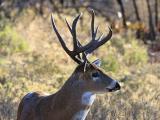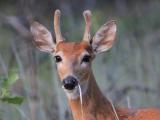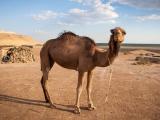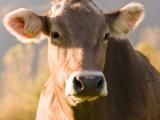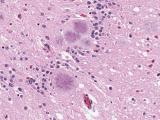Jun 20, 2006 (CIDRAP News) Canada's latest case of bovine spongiform encephalopathy (BSE), or mad cow disease, probably resulted from contaminated feed, which might have linked the case with the nation's previous one, according to the Canadian Food Inspection Agency (CFIA).
The BSE case, Canada's fifth, was discovered on Apr 16. In announcing the closing of its investigation of the case on Jun 16, the CFIA said the case fell within the same "geographic cluster" as the other four. It involved a 6-year-old purebred Holstein dairy cow in southwestern British Columbia.
The CFIA said it had identified 148 animals linked with the infected cow, including its herd mates and recent offspring. Of those, 22 live animals were located; all tested negative for BSE. One additional cow is pregnant and will be tested once it has calved.
Of the remaining cows, 77 had died or been slaughtered, 15 were exported to the United States, and 33 were untraceable, according to the news release. The US Department of Agriculture said in April it had found one of the animals exported to the United States and was looking for the 14 others.
The CFIA examined records concerning feed to which the infected animal would have been exposed early in its life, when cattle are most likely to contract BSE. "While a specific source of infection was not found, investigators determined that vehicles and equipment used to ship and receive a variety of ingredients likely contaminated cattle feed with the BSE agent," the agency said.
"Investigators also identified a feed ingredient supplier common to this case and Canada's fourth BSE animal, confirmed on January 22, 2006," the report continued. "This potential link suggests that all of Canada's BSE cases fall within the same geographic cluster, which is reflective of feed sourcing, production, and distribution patterns."
The fourth BSE case, according to Reuters, involved a Holstein-Hereford dairy cow in Alberta, which is a source of feed for British Columbia livestock.
Given its age, the British Columbia cow was born after Canada in 1997 banned putting protein from cows and other ruminants into cattle feed. But the investigation, according to the CFIA, found high compliance with the ban.
"Such findingswhich have been observed during other investigations and regular inspections of feed mills, renderers, and retailers across the countryconfirm the presence of limited opportunities for contamination during feed manufacture, transportation, storage, and use," the CFIA said.
The agency said it was still working on a proposal to broaden its feed ban so that ruminant protein would be banned from all animal feeds, not just ruminant feeds.
See also:
May 1, 2005, CIDRAP News story "USDA seeks Canadian-born cattle in BSE probe"
